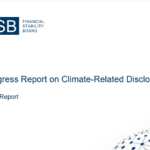A trend-monitoring report released by the Institute of Business Ethics, in partnership with corporate reputation consultancy Fishburn Hedges, reveals that staff are increasingly held to account by employers regarding ethical business practice – yet are less likely to receive training on how to deal with ethical dilemmas in the workplace.
The survey shows that, for the first time, compliance with a company code of business ethics is now included in employment contracts by the majority of companies with codes. Nearly two-fifths have used their code in disciplinary procedures, compared with one-third in 1995. Although human resource departments are becoming more involved, responsibility for the code is now typically held by the legal department or company secretary.
The report reveals that companies have recently experienced concerns with a wide range of ethical issues, from corruption and bribery (31%), and supply chains and sourcing (38%), to product safety (28%) and remuneration of senior staff (30%).
Despite this, levels of explanation for staff have fallen; only 41% of companies now offer any kind of training on the meaning and use of the company code of business ethics.
Co-author of the report, Simon Webley, from the Institute of Business Ethics, commented:
Employers tell us that they see the main purpose of the company code as providing guidance for staff. So, as it becomes increasingly important for staff to understand their company code, its both surprising and a matter of concern that the number of companies providing training is falling. Its not fair to staff, and makes companies unnecessarily
vulnerable, if they rely only on reactive measures such as disciplinary procedures. Training is an effective, proactive solution.
Following changes in the law [3] the report also revealed a rapidly growing reliance on speak-out programmes (whistle-blowing), to give companies warning of ethical malpractice. These programmes guarantee staff confidentiality and protection from reprisals, when an employee raises concerns about behaviour in the organisation which they consider to be harmful, illegal or unethical.
Confidential means for raising issues, including helplines, are now used by over two-thirds of companies, having grown in popularity by 20% since 1998.
Ethics Training
Of the companies offering training, there has been a dramatic increase in the use of the corporate intranet (56%). In-house seminars and staff manuals and guides are also popular options. By contrast, face-to-face briefings are only used by one survey respondent.
Simon Webley commented, Face-to-face briefings, where employers can ensure that the company code is properly explained and its importance emphasised, and where employees have the opportunity to ask questions and gain a full understanding, are particularly effective. However, the corporate intranet is also being used, and has the merit that it is interactive and can be accessed at times convenient to employees.
Social and Ethical Audits
The survey also reveals a sharp increase in interest in social and ethical auditing. The proportion of companies who have either engaged in such an audit, or considered doing so, is half of all respondents – double the total in 1998.
Fishburn Hedges director Martin Le Jeune commented, The increase in the use of auditing is a sign of the way in which corporate ethics is becoming enshrined in the operating structures of companies. And since audits are frequently conducted in preparation for the production of an externally-focused report, the survey also reveals a growing awareness of the benefits of including commitment to corporate ethics in wider communications.



